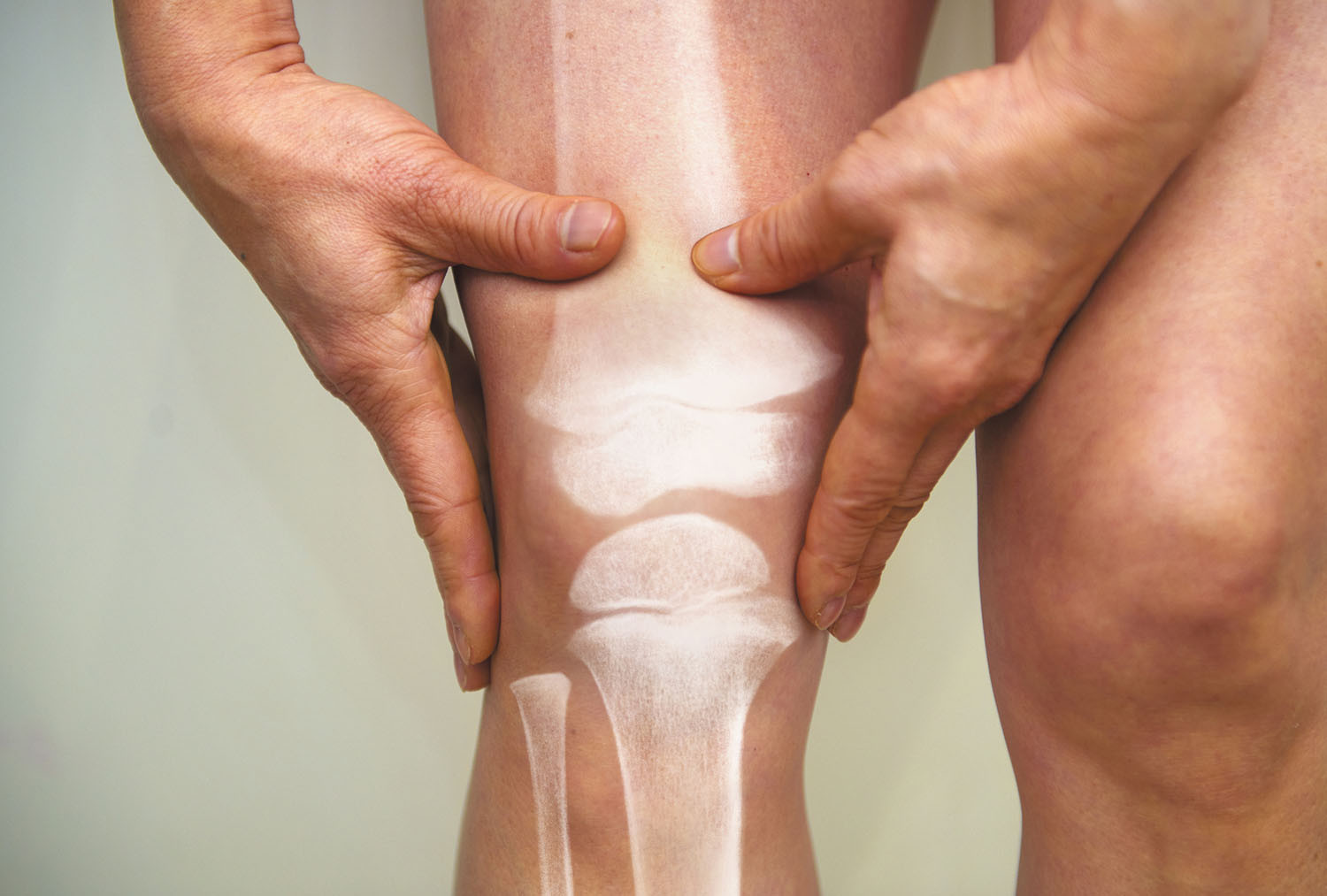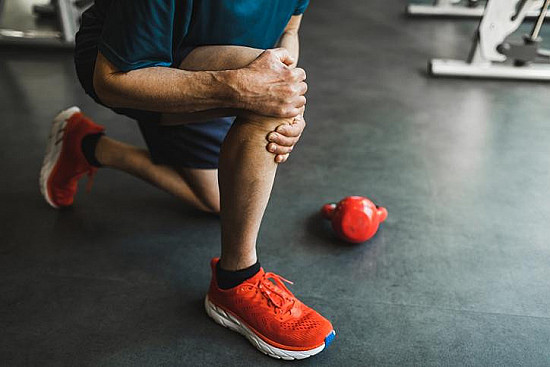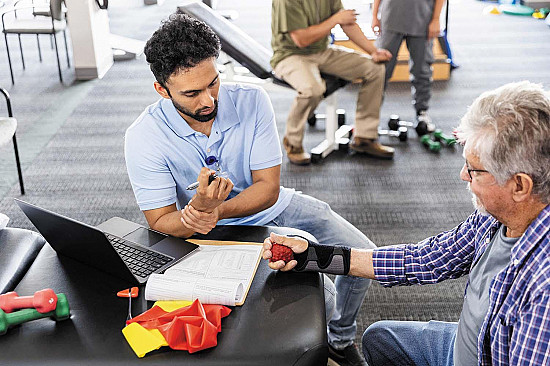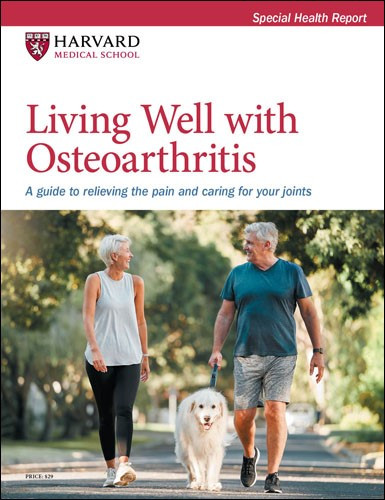You don't say? Can your joints wear out?
- Reviewed by Howard E. LeWine, MD, Chief Medical Editor, Harvard Health Publishing; Editorial Advisory Board Member, Harvard Health Publishing

Some people think their joints eventually wear out like car tires, and the more you use them, the faster they wear down until, one day, they need replacement. But joints don't work like Michelins.
This false comparison probably arises because osteoarthritis — the most common type of arthritis — is often described as "wear and tear" arthritis, which is misleading.
Osteoarthritis occurs when the smooth cartilage that lines a joint deteriorates. In some cases, this happens after an injury (like a fracture), but it's often due to age, family history, obesity, and diseases that cause chronic joint inflammation.
But osteoarthritis doesn't occur from overuse. Look at it this way: Given that 90% of people are right-handed, if osteoarthritis were use-related, arthritis would be much more common in right hands. But that is not the case.
What about a weight-bearing exercise like running? Over time, shouldn't that pounding take a toll on the knees, ankles, and hips? Again, the evidence is not there. Several studies have found that runners over age 50 had no higher incidence of osteoarthritis than similar groups of people who weren't runners.
Joints are built for movement, and in fact, people with osteoarthritis are encouraged to keep moving. (However, because it's important not to put excessive stress on their joints, non-weight-bearing activities like swimming and cycling often are recommended.)
So when it comes to your joints, you can't lose them by using them.
Image: © Peter Dazeley/Getty Images
About the Author

Matthew Solan, Former Executive Editor, Harvard Men's Health Watch
About the Reviewer

Howard E. LeWine, MD, Chief Medical Editor, Harvard Health Publishing; Editorial Advisory Board Member, Harvard Health Publishing
Disclaimer:
As a service to our readers, Harvard Health Publishing provides access to our library of archived content. Please note the date of last review or update on all articles.
No content on this site, regardless of date, should ever be used as a substitute for direct medical advice from your doctor or other qualified clinician.
















